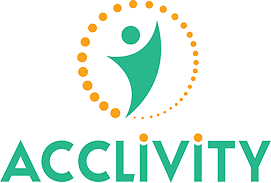In recent years, the concepts of “quiet quitting” and “quiet hiring” have gained traction in both corporate and academic settings. These phenomena reflect significant shifts in workplace dynamics, affecting how professionals, including academics, perceive their roles and opportunities. Understanding these trends is crucial for those in academia who are either feeling stuck or contemplating their next career move. This is where career coaching can play a pivotal role.
Understanding Quiet Quitting
Quiet quitting refers to employees disengaging from their roles, doing only the bare minimum required to maintain their positions. This phenomenon is often a response to burnout, lack of recognition, or dissatisfaction with job conditions. In academia, quiet quitting can manifest as reduced enthusiasm for teaching, minimal engagement in research, and limited participation in departmental activities.
Signs of Quiet Quitting in Academia:
- Reduced publication output
- Minimal involvement in academic committees or conferences
- Decreased interaction with students and colleagues
The Rise of Quiet Hiring
Quiet hiring, on the other hand, involves organizations leveraging existing talent to fill critical gaps without formal hiring processes. In academia, this can mean assigning additional responsibilities to faculty without officially changing their roles or titles. While this can be an opportunity for professional growth, it can also lead to increased workload without corresponding rewards or recognition.
Examples of Quiet Hiring in Academia:
- Faculty taking on administrative roles without official promotion
- Increased teaching loads without additional compensation
- Unofficial leadership in research projects
For academics caught in the cycle of quiet quitting or feeling overwhelmed by quiet hiring, academic career coaching offers a valuable resource. An academic career coach can provide guidance, support, and strategies to navigate these challenges effectively.
Benefits of Academic Career Coaching:
- Personalized Career Assessment: Coaches help academics identify their strengths, weaknesses, and career aspirations.
- Goal Setting: Establishing clear, achievable goals to enhance career satisfaction and progression.
- Skill Development: Identifying and developing skills needed to advance in academia.
- Work-Life Balance: Strategies to manage workload and prevent burnout.
If you’re an academic feeling stuck or uncertain about your career path, academic career coaching can provide the clarity and direction you need. Coaches offer tailored advice and support, helping you to:
- Reignite your passion for teaching and research
- Navigate institutional politics and opportunities
- Identify and pursue professional development opportunities
- Achieve a healthier work-life balance
Don’t let quiet quitting or the pressures of quiet hiring dictate your career trajectory. Investing in academic career coaching can transform your professional life, offering new perspectives and strategies to achieve your goals.
Ready to take control of your academic career? Explore our academic career coaching services and discover how we can help you advance with confidence and clarity. Contact us today to schedule your first session and start your journey toward a more fulfilling academic career.
By understanding and addressing the challenges of quiet quitting and quiet hiring, you can create a more satisfying and dynamic career in academia. Let academic career coaching be your guide in this transformative process.

